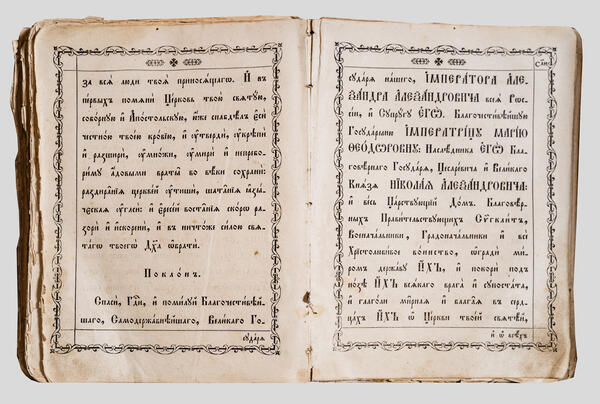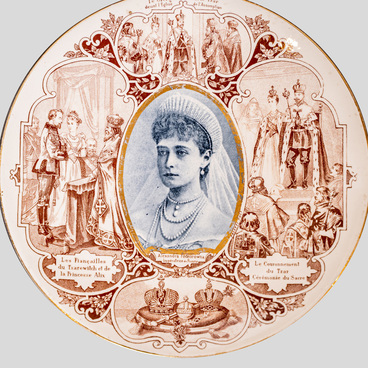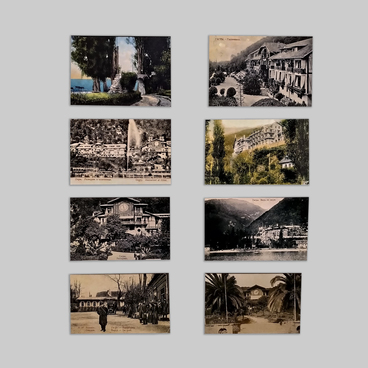The Prayer Book, which is kept in the collection of the Palace Complex of Oldenburgs, is a collection of prayers, which includes prayers for the health of Emperor Alexander III and Cesarevich Nikolai Aleksandrovich. It is printed in quattro format, on thick, rough, yellowish-white paper. The binding for the book was made of cardboard covered with dark brown leather.
The prayer book was donated to the museum by a resident of Ramon. According to him, old printed books with religious content - the Prayer Book and the Psalter - were the only ones that remained in memory of his great-grandmother from his mother’s side, who served in the Ramon palace under Eugenia Maksimilianovna of Oldenburg.
The book block contains 289 sheets. The font is Cyrillic. Typographic printing is in two colors - black and cinnabar. On some pages, the owners' inscriptions have been preserved. Letters (initials) at the beginning of each prayer are decorated with miniatures in the technique of engravings on religious topics, protrude beyond the boundaries of the first line, protrude into the text. Recesses - the red initials to begin each new phrase - are imprinted in cinnabar and scattered throughout the text, highlighting separate words and fragments. Every page is decorated with headpieces along the outer margins, which form braids with stylized floral ornaments.
Orthodox books in the Russian Empire were published in the Church Slavonic language. All divine services were held in that language not only in Russia, but also in Bulgaria, Serbia, Montenegro, Poland, Belarus and Ukraine.
Formally, the Old Testament Psalter can be considered the very first prayer book. Every psalm is a prayer. Some psalms (for example, the 50th prayer “Have mercy on me, God, according to Thy great mercy…”) are still included in modern prayer books. But if we talk specifically about prayer books intended specifically for lay people to pray at home, then their distribution is associated with the development of printing. And before that, handwritten prayer books were available either in monasteries (for cell reading by monks), or at the houses of rich townspeople, or rulers.



